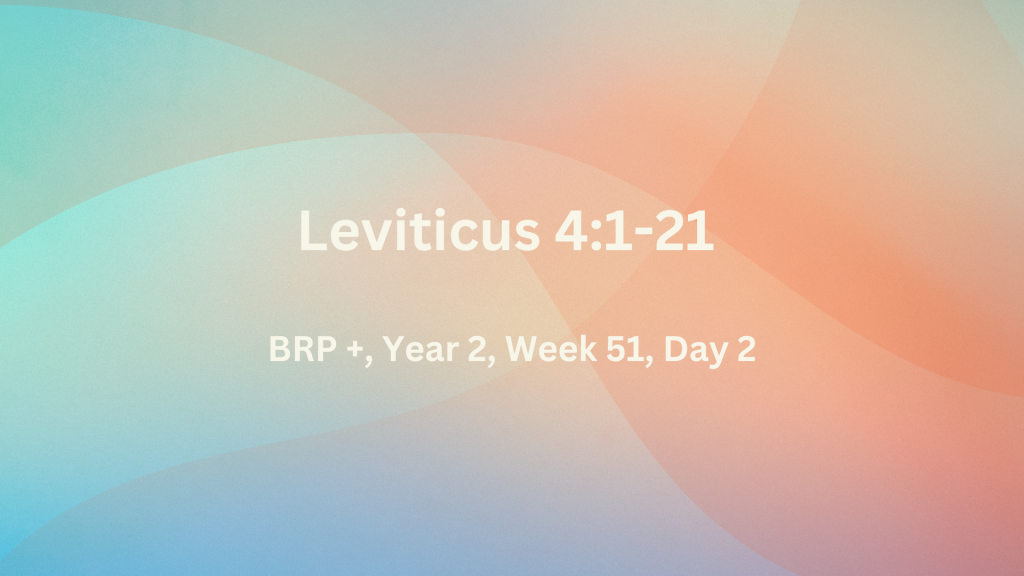Leviticus 4:1-21
Q.1. To what circumstances did the sin offering apply? For whom was the sin offering? How did the sacrifice become a substitute? – (Lev.4:1-4)
The first three chapters addressed voluntary offerings given out of appreciation for God’s atonement and fellowship. However, the sin offerings were to make atonement for the unintentional sins committed by individuals, be the priests, the general people, or the leaders – … any of the things which the Lord has commanded not to be done (Lev.4:2, 13, 22, 27 c.f. Jms.3:2; 1 Jn.1:8-10). This sacrifice required the blood of an animal without defect (Lev.4:3, 14, 23, 28, 32). Animals were of different value – a bull, then a goat, and then a lamb. A priest or leader was more guilty and responsible for a breach than an ordinary Israelite. The sacrifice for all the people collectively, required a more costly animal than the sacrifice for an individual. The offending priest or person needing atonement was to -lay his hand on the head of the bull and slay the bull before the Lord (Lev.4:4 c.f. Lev.4.15, 24, 29, 33). This drove home graphically that the sacrificial substitute paid for sin with its lifeblood. God regards our sin as serious.
Q.2. How was the blood applied? What part of the offering was included? Where was it burnt up? – (Lev.4:5-12)
The one who had committed the unintentional sin could not go into the tent of meeting itself. That was reserved for the anointed priest (Lev.4:5, 16, 25, 30, 34). He sprinkled the blood seven times before the veil and put some blood on the horns of the altar of incense and the rest on the altar of sacrifice in the outer court (Lev.4:5-7, 16-18, 25-25, 30, 34). All the fat, entrails, kidneys, and liver were offered up in the smoke as a burnt offering, and the remains burned in a clean place outside the camp (Lev.4:8-12, 19-21, 26, 31, 35).
Q.3. What would happen if the nation sinned? How was such sin atoned for? What did the elders, priest, and people do? – (Lev.4:13-21)
When the whole congregation committed any of the things which the Lord commanded not to be done, they would become guilty (Lev.4:13). The sin could only be atoned for by offering of the lifeblood of a perfect sacrifice. Representing the people, the elders would lay their hands on the head of the animal and slay it before the Lord (Lev.4:15-16). The anointed priest then had to fulfil all the ceremonial requirements, and in this way – make atonement for them, and they will be forgiven (Lev.4:20).

